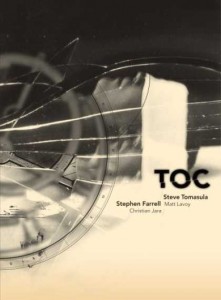Gone are the days when the average reader sits on a rocking chair for two whole days lost in the world of George Elliot’s chunky Middle March. Now think of a poem where flash media meets sound art to create poetic imagery so alive that the “reader” can almost touch it. Think of a novel or an anti-novel where the lost craft of the storyteller—oral narration—is fused with state of the art gaming and graphic design technology? What of novels written in the form of text messages and emails. What of emoticon poems? This is the world of electronic literature.
Electronic literature does not refer to E-books and other printed works in digitized forms. First born in print and then reformatted for an electronic medium, an e-book is still page-bound. In contrast, there is the “born digital” literature, a new type of artistic object. Created in a networked computer, it cannot be experienced in any other format. A “born digital” novel like TOC can only be “read” or encountered on the computer screen because it is the product of a complex mixture of media technology. A digital novel is page-unbound. The world of electronic literature is a collaborative world where a single work might pass through the hands of the writer, web developer, and graphic designer.
Electronic Literature Organization (ELO) is a group of developers and academicians who spend their time producing and thinking about the emergent art form called electronic literature. They claim that the urgency of their movement is validated by the changing spirit of the times. “Born digital literature,” they claim, is the way out for a “generation of readers for whom the printed book is no longer an exclusive medium of education or aesthetic practice.” Encoded in this observation is the darker premonition that we are at the cusp of a media Armageddon that the e-book is too powerless to reverse.
It is the desperate moment when we discover that this empire, which had seemed to us the sum of all wonders, is an endless, formless ruin–Italo Calvino, Invisible Cities
The reason people are not reading the Brothers Karamazov is not because it costs ten dollars more in book format than it costs on Kindle. Books as material objects are going out of fashion but so is the act of reading as a mode of relating self to knowledge. Maybe the problem is not entirely that people are not reading any longer but that people are reading differently. Electronic literary experts understand this, which is why they are preoccupied with producing art forms that are more in line with the digitally structured mind.
Freed from the motionlessness of the printed page, what might a poem look like? “A Dreamlife of Letters” by Brian Kim Stefans is an example of a poem floating in colored space.
Another work to check out the new media novel, TOC, a product of collaborative effort (Steve Tomasula, Stephen Farell, Matt Lavoy), published in 2009.
A clip.
The Final Journey
For more video clips of toc









Ainehi September 02, 2010 17:45
Your comment makes me question the uncritical emphasis people tend to give to reading as the only productive way of relating oneself to knowledge. Which is where I think the underlying discourse of electronic literature lies i. e. the monopoly of reading is coming to an end such that while reading might never disappear, it has to give way to other forms of media--conceptual sound art, graphic design, etc--to mediate the human experience of self and knowledge.